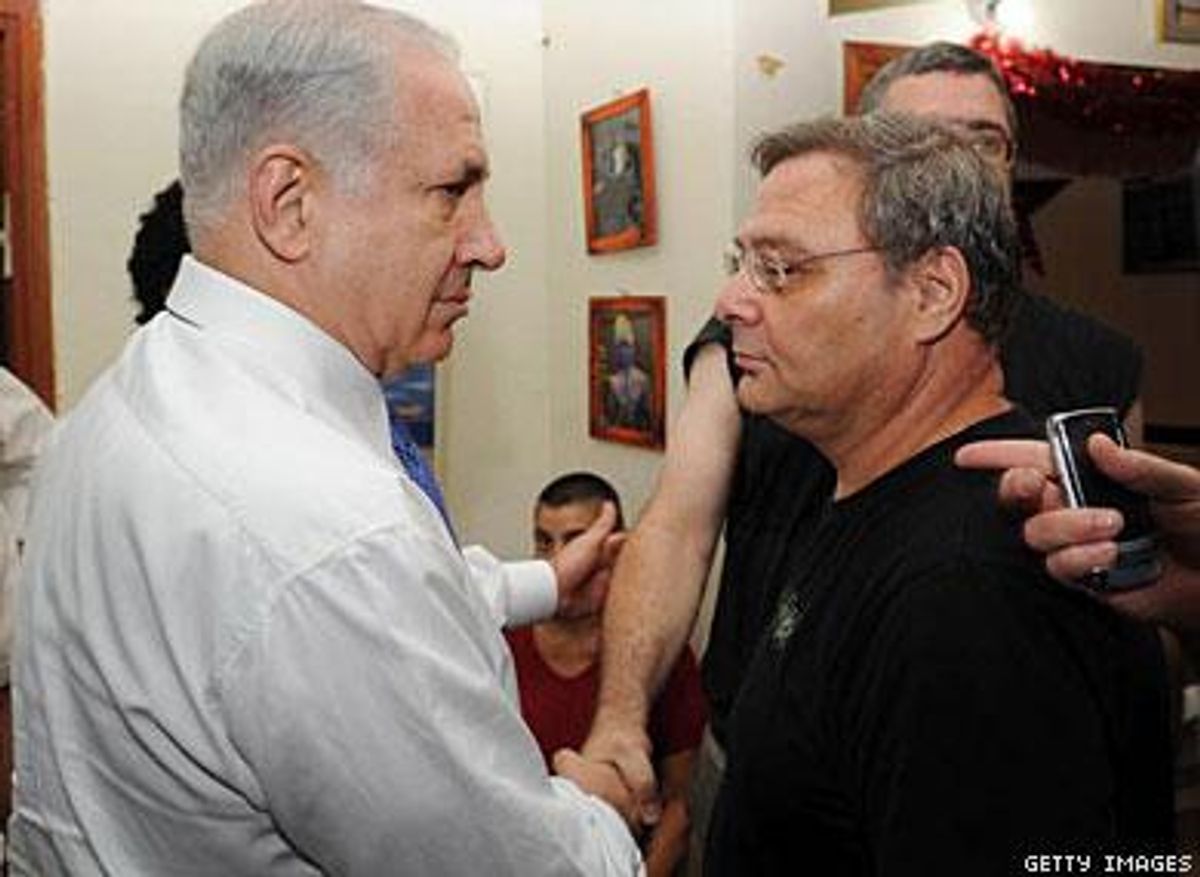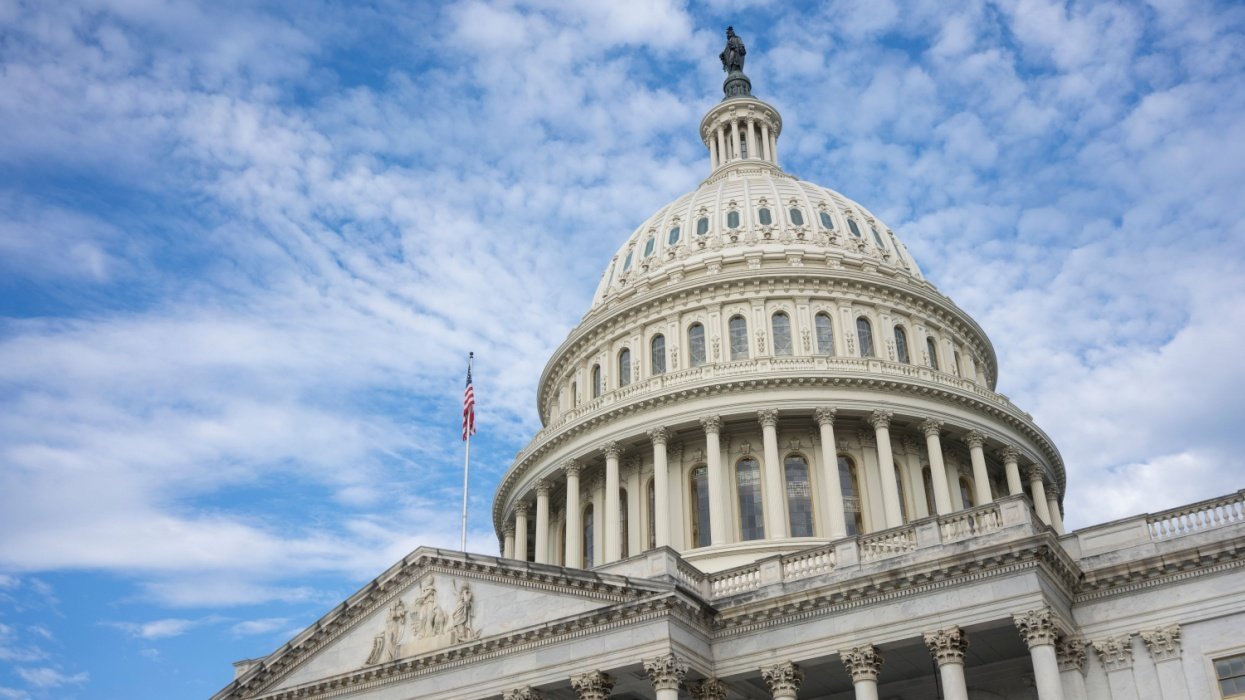At a Washington vigil held last Monday evening to mourn the victims of the Tel Aviv gay youth center shooting, an official from the Israeli embassy made a keen observation. It was a "tragic paradox," he said, for "this crime could only take place in Israel out of all the countries in the Middle East because there's nowhere else in the Middle East where there could be a meeting house for gay young people, which is open and which everybody knows its address."
That Israel is the only country in the region where homosexuality is not illegal will come as cold comfort to the victims, their families, and the country's gays, who are rightly outraged that an individual would shoot up a meeting place for gay youths. Testaments to the vibrancy and openness of Israeli gay life means nothing when two young people lie dead, nearly a dozen are injured, and an entire community is in shock.
But if there is anything positive to be gleaned from this horrific incident, it has been the reaction of the Jewish state's citizens. The country's newspapers have published countless articles about the status of gay people in Israeli society and the persistent problem of homophobia. Even the country's ultrareligious figures -- perhaps cognizant of how their own teachings may have created an environment in which such an attack could take place -- have condemned the murders.
Prime Minister Benjamin Netanyahu, derided by so many critics of Israel as a far-right warmonger, immediately visited the gay center and pledged that his government would find the killer. "I say to the Israeli people: We are a democratic country, we are a country of tolerance, a country of laws, and we must respect every person, whoever and wherever he is," he said.
Israeli president Shimon Peres declared that the slaying was "a murder that a cultured and enlightened people cannot accept."
Contrast this shamed reaction of Israeli public officials and society with the behavior of Israel's neighbors. Throughout the Middle East, it is usually the governments themselves that are committing the violence against their own gay citizens.
In 2001, Egypt arrested 51 men aboard a gay cruise ship and subjected them to a show trial in which their faces were displayed on national television. Iran executes gays, whose existence its president denies. In Saudi Arabia the punishment for homosexuality is decapitation. Those who believe the United States is "biased" toward Israel and should be more "evenhanded" in its approach to diplomacy in the region should at last recognize that the primary reason for our historic support of Israel is a set of common liberal values, values which Israel's neighbors simply do not share.
Two years ago I marched in the Jerusalem gay pride parade, an event that had been marked in years past by bomb threats and violence. The parade lacks the bacchanalian atmosphere of most gay pride events. There are no men in underwear or Dykes on Bikes; the organizers are respectful of the city's gravity and respect its significance to the world's three major religions. Protesters lined the short route holding signs bearing passages from Leviticus and shouted imprecations about how we were "disturbed." The Jerusalem Pride Parade serves the unique, ecumenical function of uniting fundamentalist Jews, Christians, and Muslims, providing them with a common target.
It is often remarked that religion is the greatest obstacle to society's overcoming its irrational fear and loathing of homosexuality. If that's the case, then last week's vigil in the nation's capital did offer one glimmer of hope. That's due to a surprising and heartening message from Shmuel Herzfeld, a local Orthodox rabbi. The mere presence of an Orthodox religious figure at such an event seemed to shock many in the audience, as Orthodox Judaism proscribes homosexuality, just like its fellow Abrahamic faiths. But Herzfeld had only words of support for the gay community, and, more surprisingly, words of criticism for his fellow Orthodox clergy.
The murders, he began, represented an "an attack upon all those who believe, as I do, that the land of Israel should be a homeland for all Jews."
But he went further than any of his Orthodox colleagues, both here and in Israel, who contented themselves with condemning the criminal aspect of the shooting while neglecting to address the greater problem of antigay sentiment in religious communities. Though the perpetrator has yet to be found and no motive is yet determined, Herzfeld, who counts many of Washington's influential journalists, politicians, and power brokers (many of them political conservatives) as friends, pointed the finger at his own denomination, which condemns homosexuality. There must be an "internal accounting," he demanded, and a serious discussion about "whether or not the rhetoric coming out of the Orthodox community is contributing to this violence." Though the event was a solemn occasion, the crowd let out a spontaneous burst of applause, the only speech for which they had such an enthusiastic reaction.
Religious orthodoxy has proven itself enormously resistant to the temptations of secular culture and social change in general. While public attitudes about homosexuality have transformed dramatically for the better over the past 50 years, religious communities remain incredibly difficult places for gay people to exist. Let us hope, therefore, that Rabbi Herzfeld is not an anomaly but a marker of things to come.

















































































